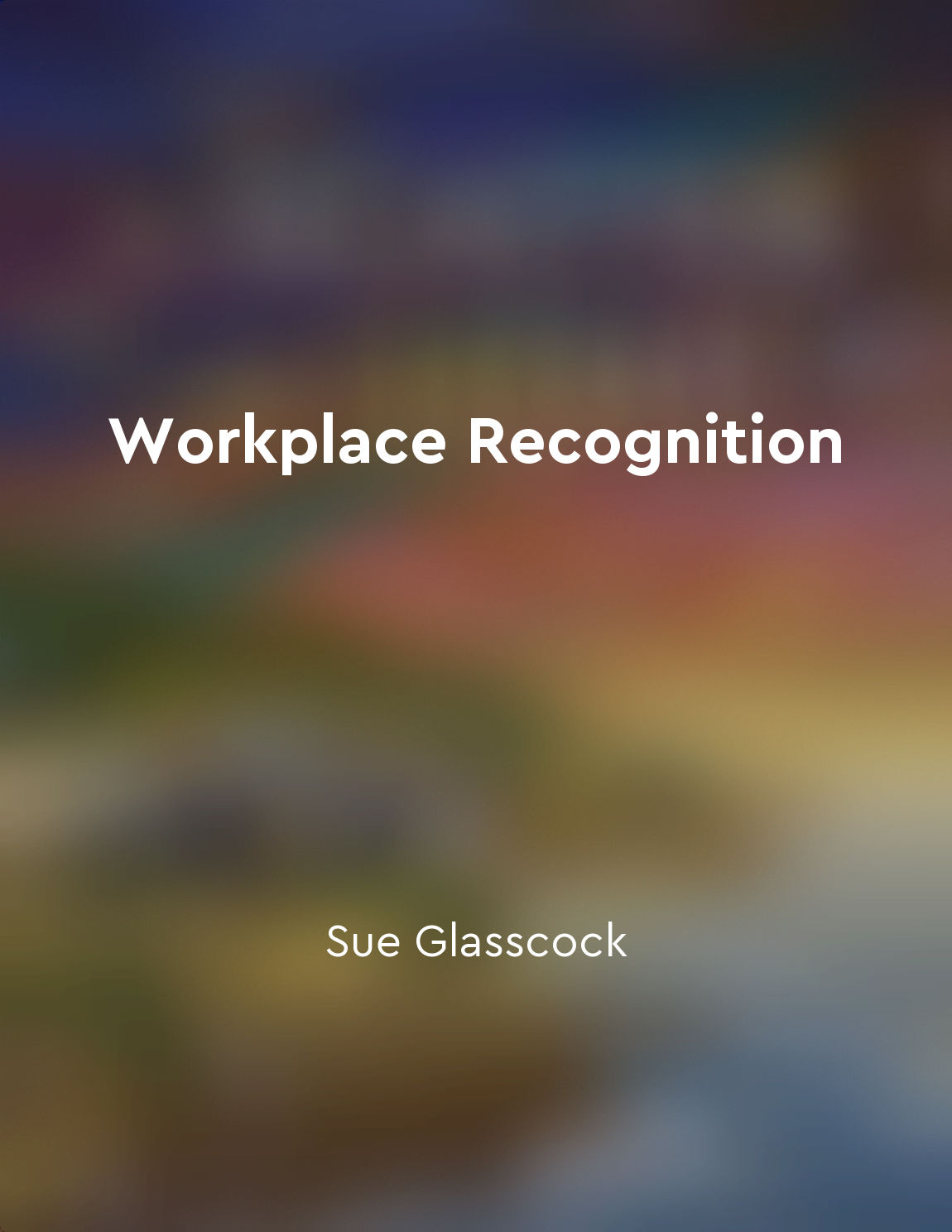Recognition should be specific and meaningful from "summary" of Workplace Recognition by Sue Glasscock,Kimberly Gram
Recognition in the workplace plays a crucial role in motivating employees and boosting morale. However, simply acknowledging someone's efforts without providing specific and meaningful feedback can be ineffective and even counterproductive. When recognition is vague or generic, it lacks the power to truly inspire and encourage employees to continue their hard work. Specificity in recognition is essential because it provides employees with clear feedback on what actions or behaviors are being appreciated. For instance, instead of saying "good job on the project," a more specific recognition could be "I appreciate the thorough research you conducted for the project presentation, it really helped us stand out." This type of specific recognition not only acknowledges the employee's efforts but also highlights the impact of their work, reinforcing the behavior for the future. Furthermore, meaningful recognition goes beyond mere praise and taps into the intrinsic motivations of employees. By connecting recognition to the values and goals of the organization, employees can see how their contributions are making a difference and feel a sense of purpose in their work. For example, recognizing an employee for demonstrating excellent teamwork skills not only acknowledges their individual effort but also reinforces the importance of collaboration within the team. In addition to specificity and meaning, timeliness also plays a critical role in effective recognition. Providing timely recognition ensures that employees understand the direct link between their actions and the acknowledgment received. Delayed recognition may lose its impact and fail to reinforce the desired behaviors in the future. Therefore, it is important for managers to recognize and appreciate employee efforts in a timely manner to maximize the positive impact of recognition.- By making recognition specific and meaningful, managers can create a culture of appreciation and motivation in the workplace. Employees who receive personalized and relevant recognition are more likely to feel valued and engaged, leading to increased productivity and job satisfaction. It is essential for organizations to prioritize effective recognition strategies that focus on specificity, meaning, and timeliness to foster a positive work environment and drive employee performance.


